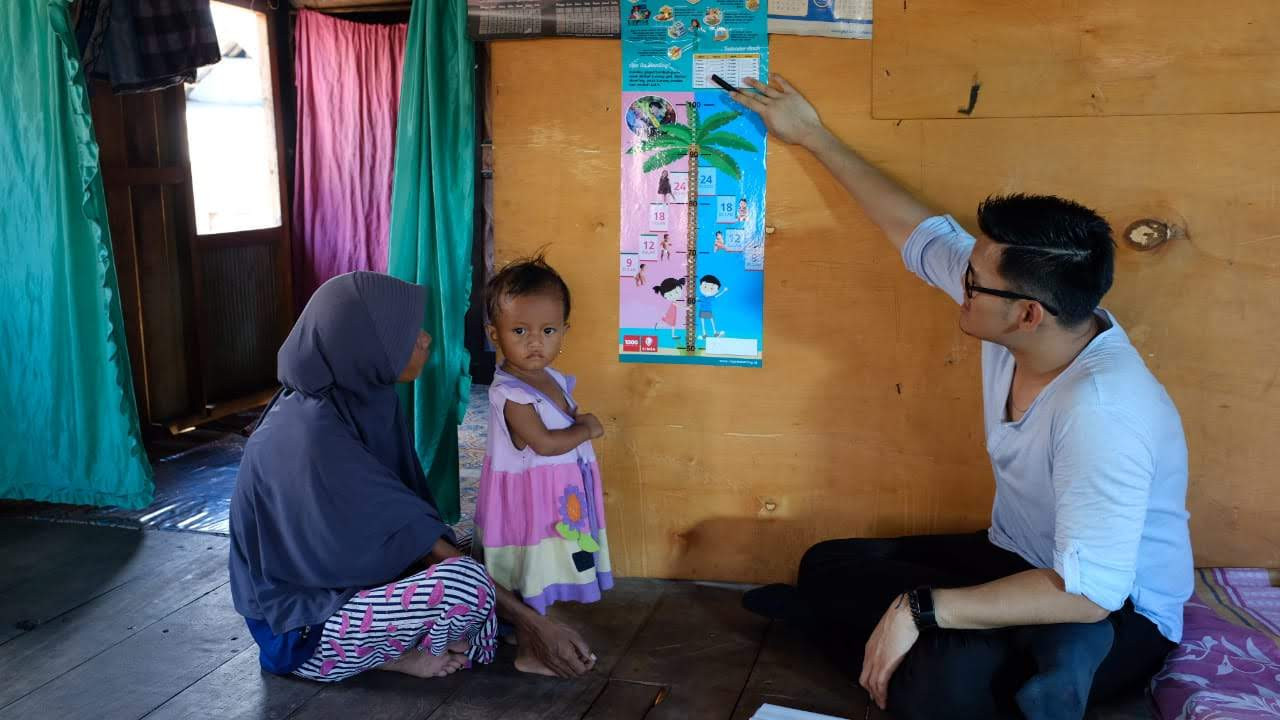22 million Indonesians endured chronic hunger in Jokowi's first term: ADB report
Many people across the country are still engaged in traditional agriculture as they are trapped in low-paid activities, which lead to hunger and increased risk of stunting among children.
Change Size
 Growing up: A 1000 Hari volunteer explains the features of a height chart a mother in Rinca, on the fringes of Komodo National Park in East Nusa Tenggara. The province has a high stunting prevalence of 43 percent. (Gumilang Aryo Sahadewo/-)
Growing up: A 1000 Hari volunteer explains the features of a height chart a mother in Rinca, on the fringes of Komodo National Park in East Nusa Tenggara. The province has a high stunting prevalence of 43 percent. (Gumilang Aryo Sahadewo/-)
T
he latest assessment conducted by the Asian Development Bank (ADB) and the International Food Research Institute (IFPRI) with support from the National Development Planning Agency (Bappenas) has found that 22 million people in the country suffered from chronic hunger between 2016 and 2018.
The report, titled “Policies to Support Investment Requirements of Indonesia’s Food and Agriculture During 2020-2045” and published in October, highlighted strong growth in the Indonesian agricultural sector and overall economy over the past several decades.
However, the report also notes that, despite such significant strides in the sector, many people across the country are still engaged in traditional agriculture as they are trapped in low-paid activities, which lead to hunger and increased risk of stunting among children.
“Many [people] do not get enough food and their children are prone to stunting, keeping them in a vicious cycle for generations. From 2016 to 2018, about 22 million people in Indonesia still endured hunger,” the report says, referring to the first term of President Joko "Jokowi" Widodo.

The report further notes that issues such as unequal access to food and food insecurity have remained unresolved in the country, despite increasing trends in food production and availability, as well as in household incomes.
Indonesia ranks 65th among 113 countries in the Global Food Security Index (GFSI) published by the Economist Intelligence Unit, below its ASEAN peers such as Singapore (1st in the index), Malaysia (40th), Thailand (54th) and Vietnam (62nd), the report notes.
Among the possible solutions to such persistent problems is increased investment in agriculture to modernize food systems, according to the report.
“Such investment will not only help improve the country’s food production but will also enable households to engage in more productive sectors and earn a better income,” the report says.
Based on the survey results, the report says that Indonesia can virtually end hunger by 2030 and fully eradicate hunger by 2045 through investments in agricultural research and development (R&D), irrigation expansion and water use efficiency, as well as improved rural infrastructure including roads, electricity and railways. (rfa)
***
Editor’s note: The word “hunger” in the article’s title and first paragraph has been changed from “starvation” in the initial title.









